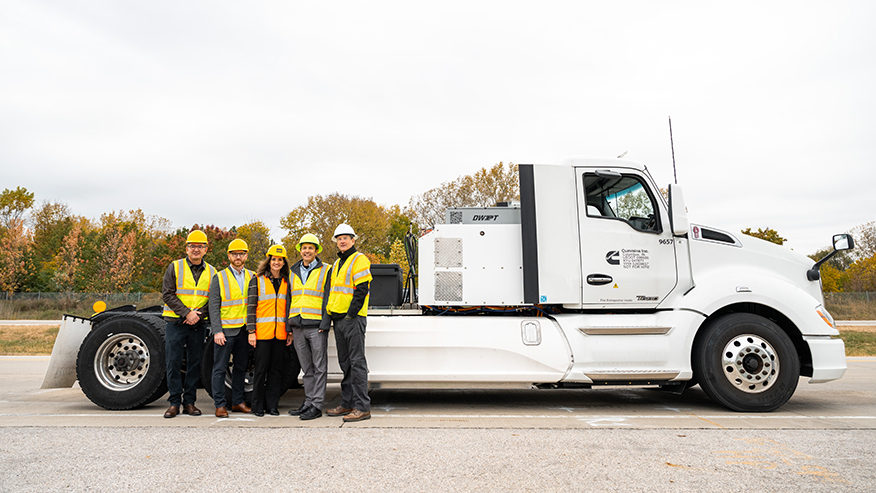Soybean industry to benefit from growing demand of cell-cultured meat

Soybean plant (Purdue Agricultural Communications photo/Tom Campbell)
WEST LAFAYETTE, Ind. —
The prospect of increased demand for cell-cultured meat is expected to positively impact the soybean industry, according to a new paper from Holly Wang, professor of agricultural economics, at Purdue University.
Published in the department’s Purdue Agricultural Economics Report (PAER), Wang’s collaborators are Shihuan Kuang, professor of animal sciences, and graduate students Yanyu Ma and Yizhou Hua.
The paper, titled, “The Rise of Meat Substitute Consumption and Its Impact on the U.S. Soybean Industry,” predicts that the demand for soybean consumption will rise due to the wider availability of meat substitutes or plant-based meats. Their research finds that the sales of plant-based meat in the U.S. has increased by 56% from 2018 to 2021.
Among new meat substitutes is cell-cultured meat, an industry that the U.S. Food and Drug Administration and the United States Department of Agriculture recently approved to enter the U.S. market. Through their findings, Wang and her collaborators conclude that this industry has the potential to change the way we produce and consume meat.
“Lab-cultured meat products are already sold and consumed in the world, with some produced and supplied by U.S. firms. Domestically, lab meat just received major government approval, and so it can move very fast to the market,” Wang says. “Mass production is expected right around the corner.”
Wang specifically references a cell-cultured meat firm, Upside Foods Co. With products already produced and sold commercially in Singapore, the company is one of the largest cultured meat producers in the country. The company has plans to introduce a cultured chicken product into the U.S. market in 2023.
The paper details that during the lab production of cell-cultured meat, soybeans can be the primary source for protein hydrolysates, the necessary nutrient used to help cells grow into “meat.” Also, the soybean to cell-cultured meat ratio is high, therefore, lab-cultured meat could create a high demand for soybeans.
The authors acknowledge concerns about high prices, restrictive taste and appeal, and the potential artificial nature of the lab-product. Still, previous peer-reviewed studies have shown that one in three Americans are not averse to sampling lab-grown meat.
Writer/Media contact: Ashvini Malshe, 765-496-7480, malshea@purdue.edu
Source: Holly Wang, 765-494-4245, wanghong@purdue.edu
Agricultural Communications: 765-494-8415;
Maureen Manier, Department Head, mmanier@purdue.edu
Agriculture News Page



